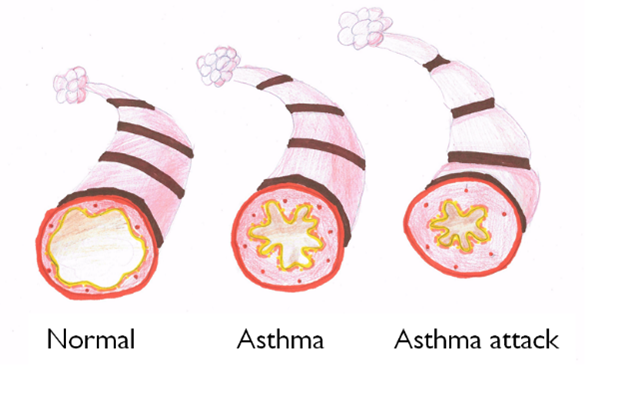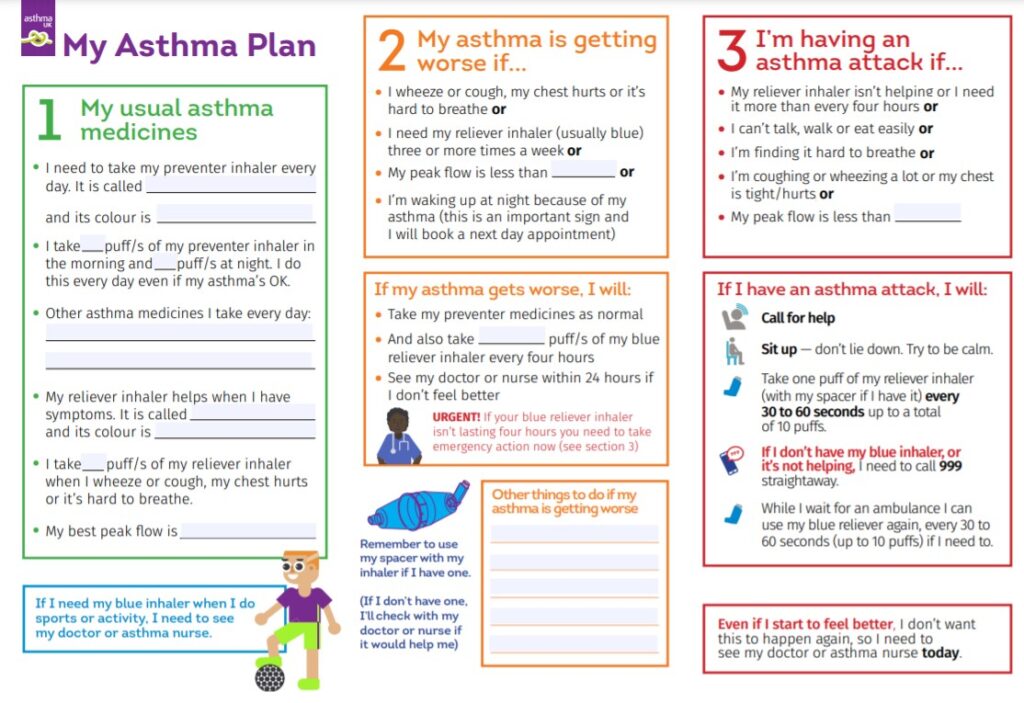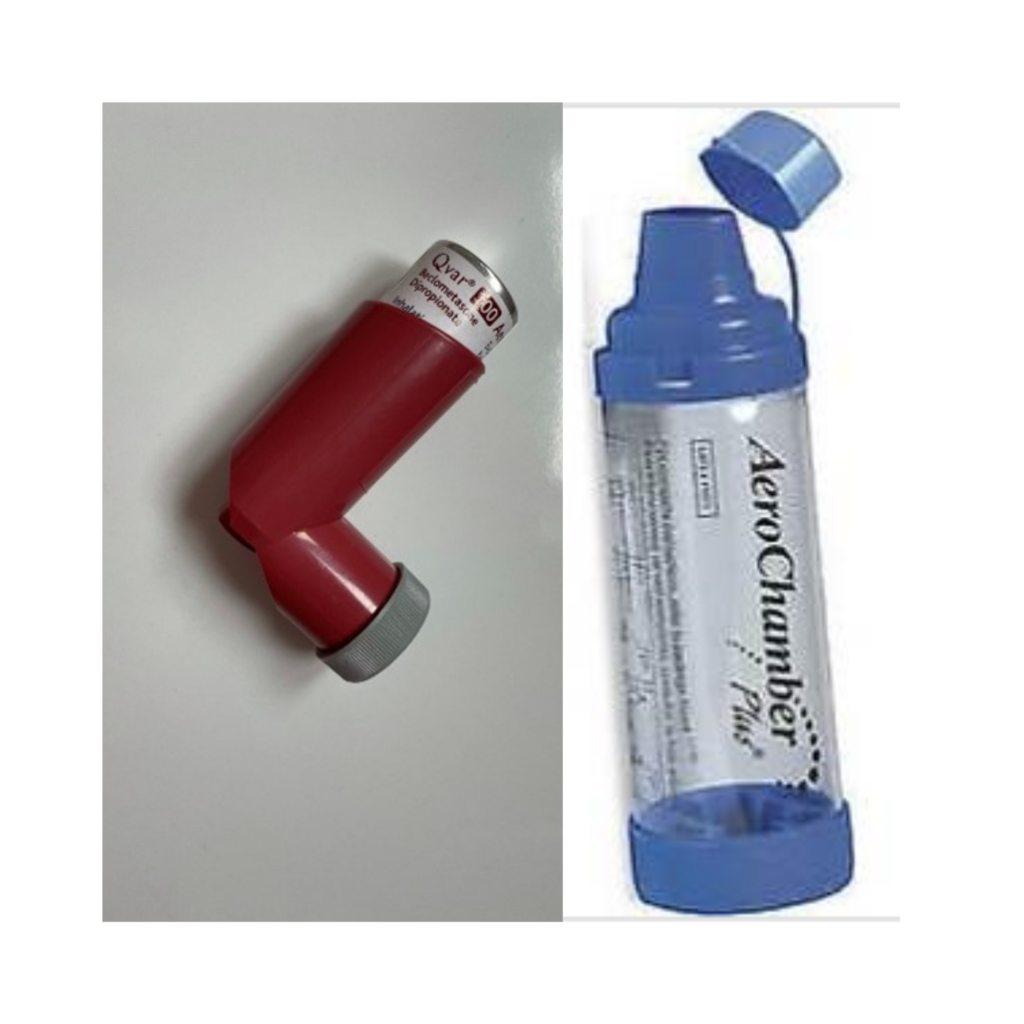Asthma Awareness
This information was put together with guidance from Breathchamps who kindly ran a training session for the members of Youthwatch Trafford to raise awareness about asthma and asthma management.
Asthma is very common – in the UK, 1 in every 11 children has asthma and a child is admitted to hospital every 20 minutes.
This page is intended for people with asthma and anyone looking to learn about how to support someone with asthma. We cover:
- What is asthma?
- What is an asthma attack and how to deal with it
- Personal asthma action plans
- Annual review and flu jabs
- How to use inhalers
If you are are struggling with your asthma or are unsure about any aspect of asthma management, see our links at the bottom of the page for further advice and support.
What is asthma?

- Asthma is a long-term condition that affects your airways (tubes which transport air into and out of your lungs).
- Some people have ‘sensitive’ airways” which means their airways are ready to react when they come into contact with something they don’t like called allergens. These allergens when in contact with their airways make them sore and narrow (as shown in the picture right), making breathing difficult.
- There are many allergens in environment including dust in air, pollens, excessive pollution, animal fur, house dust mites. Sometimes cold air and exercise also make their airways sore.
- Asthma tends to run in families (sourced from Asthma UK)
For further information about what asthma is, have a look at the NHS website: www.nhs.uk/conditions/asthma/
What is an asthma attack and what to do?
What does an asthma attack look like?
- Breathless, wheezy, coughing
- Pale or blue lips
- Can’t talk, walk, eat
- Doesn’t settle after 2-4 puffs of blue reliever
What does it sound like?
Here’s an audio recording of the sound of someone having an asthma attack:
( Warning: contains noises that some listeners may find upsetting)
What to do:
- Sit them up & call 999
- Stay calm
- Remember:
‘Ten puffs of blue
Is the right thing to do
Ten puffs of blue
When you get in a stew
What is a personal asthma action plan?
Everybody who has asthma should have a personal asthma action plan (PAAP) from their GP surgery. They describe:
- which medicines to take every day – this is to prevent symptoms and cut the risk of an asthma attack,
- what to do if your asthma symptoms are getting worse; and
- the emergency action to take if someone has an asthma attack and when to call 999.
Here is an example – you can download one from Asthma UK:

Why is an annual asthma review & Flu immunisation important?
An annual review is carried out by an asthma nurse or by your doctor and looks at: Asthma control – assessing your symptoms and management; your inhaler technique and your personal asthma action plan.
Annual reviews are important because they allow you to check if your medicine is correct for you, and if your inhaler technique is good which is essential for managing your asthma.
Flu immunisation is offered to all children in school and offered to young adults by GP surgeries.
Flu immunisation is important because if you have asthma and do catch the flu, it is likely to affect you more severely as compared to a person without asthma.
How to use inhalers
For a demonstration on correct inhaler technique, watch the following video:
Correct inhaler technique: Children
- Shake inhaler, remove cap
- Fit into spacer
- Chin and spacer level
- Seal mouth around spacer mouthpiece
- One puff
- Five ordinary breaths (tidal breaths)
- Repeat as per asthma action plan
- Wait a minute between puffs
Inhaler technique: Young people & Adults
For young people and adults, the type of inhaler technique required depends on the type of device being used.

A slow and steady deep breath in.
Using a spacer is best.

A fast and deep breath in.
Where Can You Get Help?
- Talk to your GP or school nurse
- Look at www.asthma.org.uk for information and extra help in managing your asthma
- Contact Breathchamps for awareness training so that we can all help our community learn how to support people with asthma
